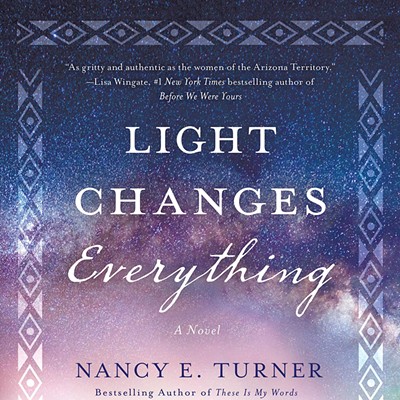And he's just published one very cool Bible story.
Maine's debut novel retells the story of the great flood. The Preservationist opens with Noe (Noah to folks like me), 600 years old--laconic and crotchety--taking a leak and scanning the skies. He's had one of his visions; he's got to build a boat. And Yahweh says: Make it big.
David Maine has taken the spare, generalized Old Testament story and elaborated on it with muddy, dungy realism, individuated characters and an examination of the downside of the "special" relationship between one of the patriarchs and his God. And it's more entertaining than you'd expect from a narrative of the destruction of nearly all humankind.
Maine metes out the practical and the miraculous equally in this enterprise: Noe travels six days to the land of the giants (no attempt to explain; just giants) to get the timber for the ark. The only payment he offers them is to keep their memory alive after they're destroyed. He sends daughter-in-law Bera off alone to collect samples of all the animals in the south. ("The problem with people who think God will provide," she grumbles, "is that they think God will provide.") Which of course, He does, blowing her ship off course to collect a ready-made menagerie stocked with all the species of the south.
The logistics of housing, feeding, separating (so those species get conserved rather than consumed) and mucking out stalls of all the world's animals presents a physical challenge and complicates family dynamics. Predictably, some family members dig in with greater alacrity than their fellows. Nor are basic human realities ignored--including toothache, constipation, the effects of the cold and damp, body odor, sex drive, stultifying cabin fever after 40 days and nights of rain, and then six months of sloshing alone on a gray sea beneath a gray sky.
Maine brings both a sense of the power of story and a 21st-century sensibility to this work. While the Genesis tale names only the men in Noe's family--besides himself, sons Sem, Cham and Japheth--Maine names the women and gives them personality and intellectual capacity. With an eye to repopulating the world, Maine creates Sem's wife Bera as the sold-off, dark-skinned daughter of a chief from southern regions. Cham's wife, Ilya, is fair-haired and pale. (Sem thinks she's the walking dead--with "dead white fingers like grubs.") She's the daughter of a trader from the north. Japheth, only 16, who talks like a mall rat and would spend every waking hour "rutting," is married to a 14-year-old from just over the mountains. Writing in multiple points of view, Maine sharply delineates each character--from Sem the religious conservative to Ilya the nascent scientific feminist. Each of the men undergoes some change in the course of the flood; each of the women establishes herself in some fashion--with the exception of Noe's wife. Already 60, spirit broken and subordinate to brutish Noe, she's a product of pre-flood culture, and she never even speaks her own name--and we never learn it, either.
The greatest character change occurs in the patriarch himself.
Fiercely and dauntingly righteous, Noe has long had a direct line to God--on God's terms. A visionary, uncompromising character, the only thing humorous about Noe is others' reactions to him: The wife: "So when Himself starts with the visions and the holy labors and the boat full of critters, what am I supposed to do? Talk sense?"
Noe's crisis comes when they've been floating a few days, once all the rest of creation has been drowned, after he self-righteously rebuked the sinners about to drown and refused to take aboard even their babies. After a vision of angels flying above him, Noe falls into a intense delirium that shatters Noe's intransigent self-assurance and questions even the nature of Yahweh.
Maine's slim, layered book--part Married With Children does Survivor, part thundering Old Testament sermon--is vivid. His themes--male/female divinity, questions of the "elect," the preservation of life, the power of story, destructiveness and incomprehensibility of Old Testament revenge, and the devastation of being "ordinary" after being special--hang on afterward, in after-images of doves, a rainbow and layers of slick guano.








